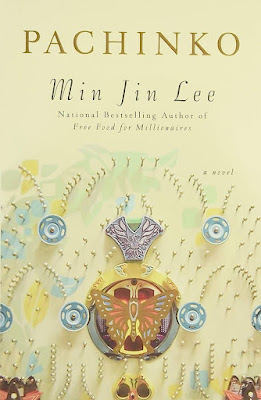In "Pachinko," Min Jin Lee takes readers on a poignant journey through generations, exploring themes of love, sacrifice, and the search for identity. This book review will delve into the strengths and weaknesses of the novel, analyze the author's writing style, and provide insights into what makes this book a compelling read for college students and book lovers alike.
Summary
Set in Korea and Japan, "Pachinko" spans several decades and follows the lives of multiple characters from a Korean family. The story begins in the early 1900s with Sunja, a young girl who becomes pregnant by a wealthy married man.
As a result, she finds herself facing societal judgment and limited options. Sunja's resilience leads her to marry a kind, but sickly, minister who offers her a chance at a new life in Japan.
From there, the narrative explores the struggles, triumphs, and heartbreaks of subsequent generations as they navigate discrimination, family dynamics, and the pursuit of their dreams.
Strengths
1. Multigenerational Saga
"Pachinko" skillfully weaves together the lives of different characters across generations, creating a rich tapestry that keeps readers engaged and invested in their journeys. The book offers a comprehensive exploration of the Korean diaspora, highlighting the complexities of identity and belonging.
2. Cultural and Historical Context
Min Jin Lee meticulously incorporates historical events and cultural nuances into the narrative, providing readers with a deeper understanding of the time period and the challenges faced by Korean immigrants in Japan. The book sheds light on the intricacies of the relationship between the two countries and the lasting impact on their citizens.
3. Complex Characters
The characters in "Pachinko" are beautifully fleshed out, with each carrying their own burdens, desires, and flaws. Their struggles and triumphs feel authentic, making it easy for readers to connect with their stories on an emotional level.
Weaknesses
1. Slow Pacing
At times, the novel may feel slow-paced, as it meticulously explores the inner lives of the characters and delves into historical context. While this attention to detail adds depth, it may test the patience of readers seeking a faster-moving plot.
2. Emotional Distance
The author's writing style, though elegant and descriptive, can create a certain emotional distance between readers and the characters. While this might suit some readers' preferences, those who prefer a more immediate emotional connection might find it challenging to fully engage with the characters' experiences.
Author's Style
Min Jin Lee's writing style is rich in detail and offers a deep exploration of her characters' inner worlds. Her prose is elegant and evocative, painting vivid scenes that transport readers to the settings of Korea and Japan. Lee's ability to seamlessly blend historical facts with compelling storytelling showcases her research and dedication to creating an authentic narrative.
Expectations and Enthusiasm
With "Pachinko," readers can expect a captivating saga that spans generations, exploring themes of love, sacrifice, and cultural identity. The novel delves into the complexities of familial relationships and the impact of societal norms on individuals' lives.
Min Jin Lee's meticulous attention to historical and cultural details ensures a rewarding reading experience that will leave readers reflecting on the characters' journeys long after the final page.
Spoilers!
One of the most powerful moments in "Pachinko" occurs when Sunja's son, Mozasu, faces discrimination in Japan due to his Korean heritage. Despite his academic achievements, he is repeatedly denied opportunities and faces constant prejudice. This experience highlights the ongoing struggles faced by Korean immigrants in Japan and the resilience required to overcome such adversity.
The Symbolism of Pachinko
Throughout the book, the author utilizes the popular Japanese arcade game, Pachinko, as a metaphor for life. The addictive nature of the game reflects the characters' desire for success, fortune, and validation, while also highlighting the unpredictability and uncertainty that comes with it.
Exploration of Gender Roles
"Pachinko" delves into the constraints and expectations placed on women in traditional societies. Through the experiences of various female characters, the book raises questions about agency, independence, and the struggle for equality.
Final thoughts
"Pachinko" by Min Jin Lee is a compelling and thought-provoking novel that explores the intricacies of the Korean diaspora, cultural identity, and the enduring power of love and sacrifice.
Through its multigenerational saga, the book sheds light on the challenges faced by Asian immigrants and the resilience required to overcome discrimination.
With meticulous attention to historical detail and beautifully complex characters, "Pachinko" is a must-read for anyone seeking a captivating exploration of identity, family, and the pursuit of a sense of belonging.
Edited by: Khushi Bansal









0 Comments